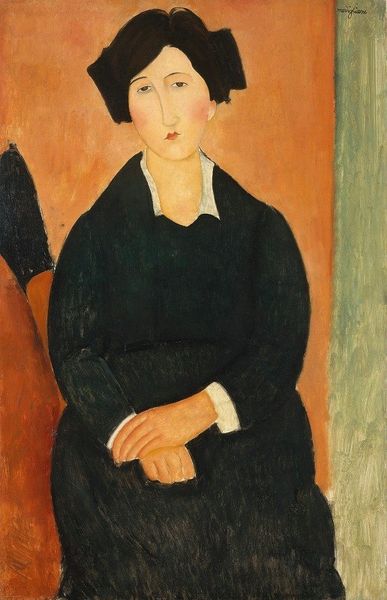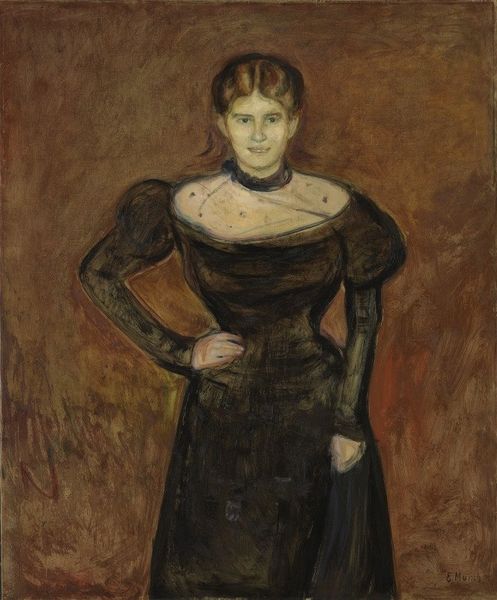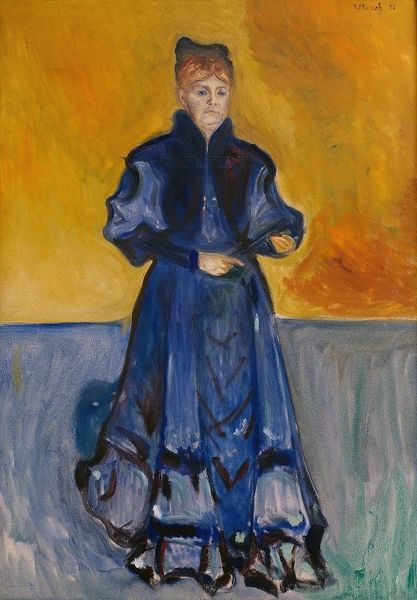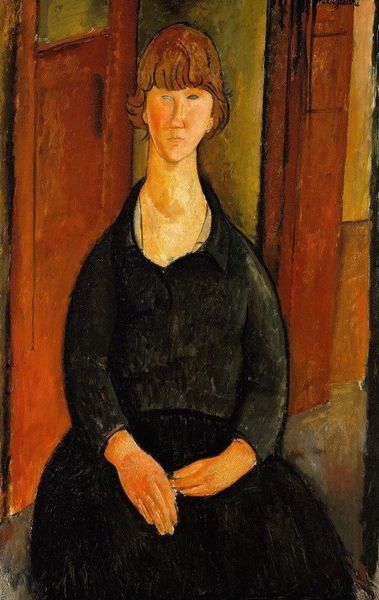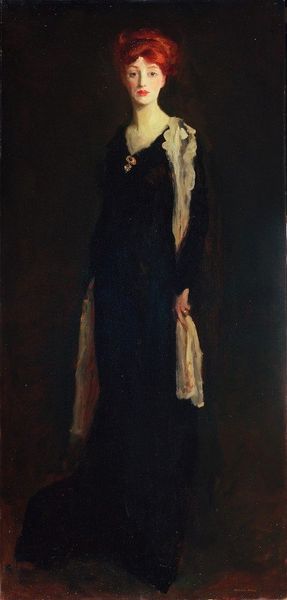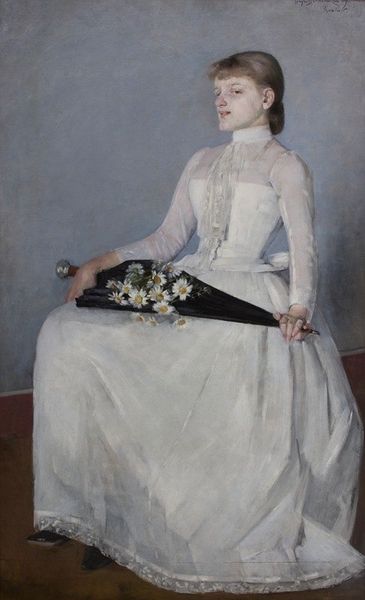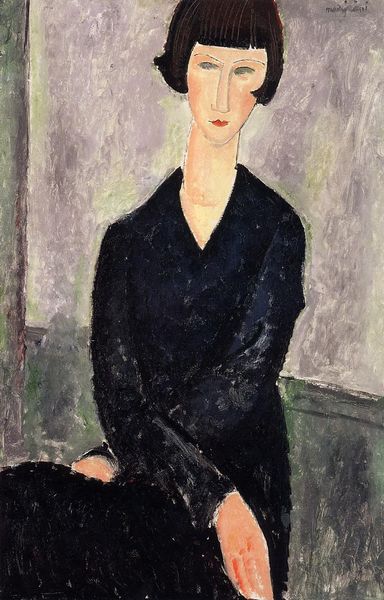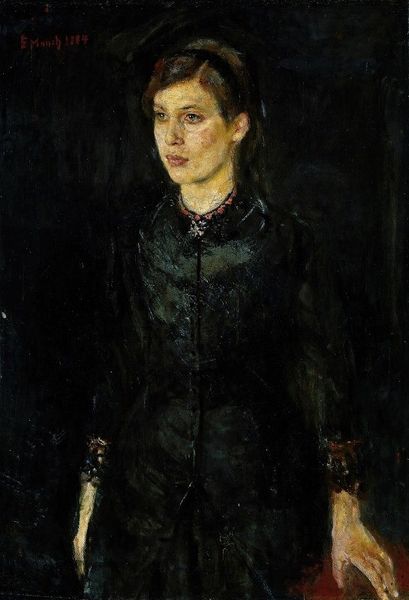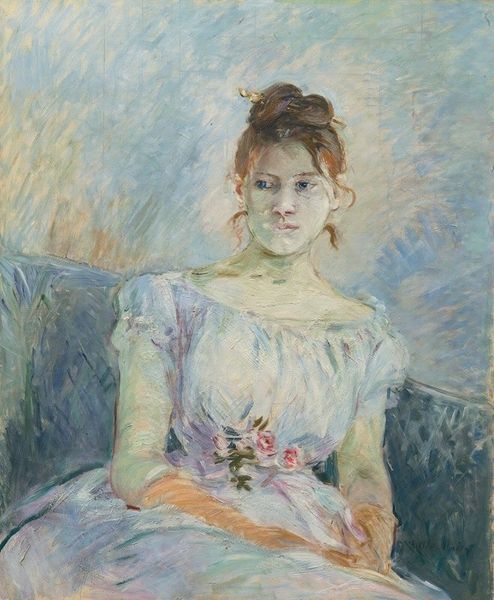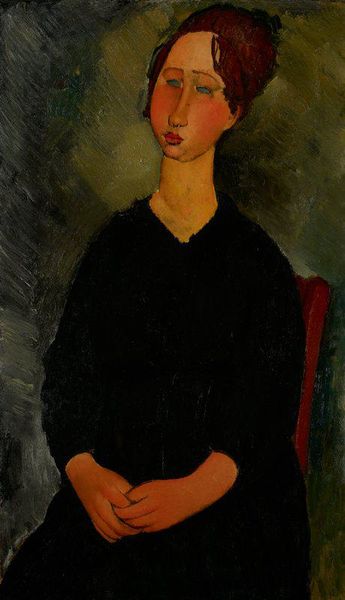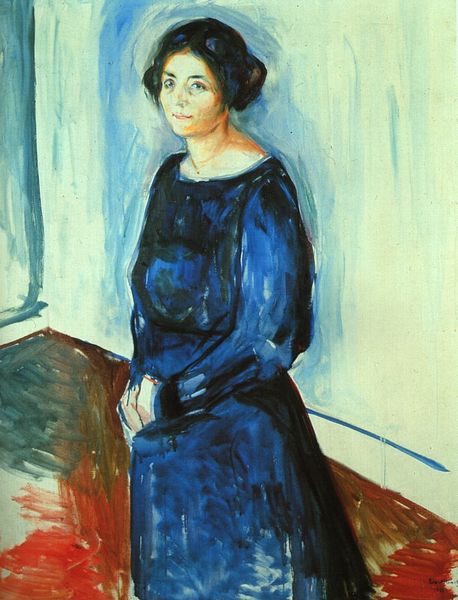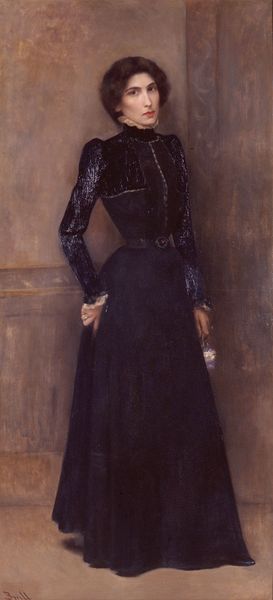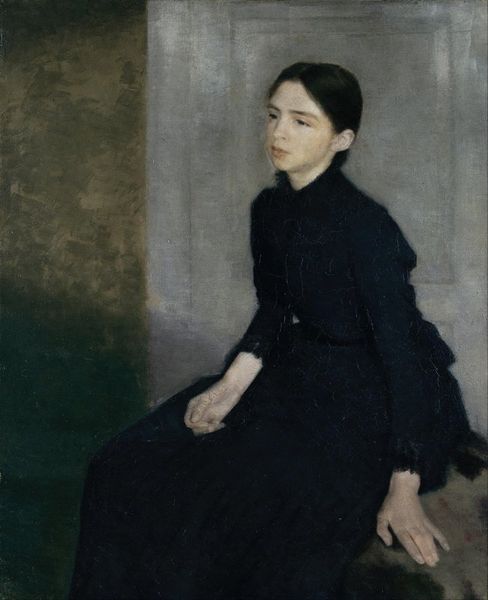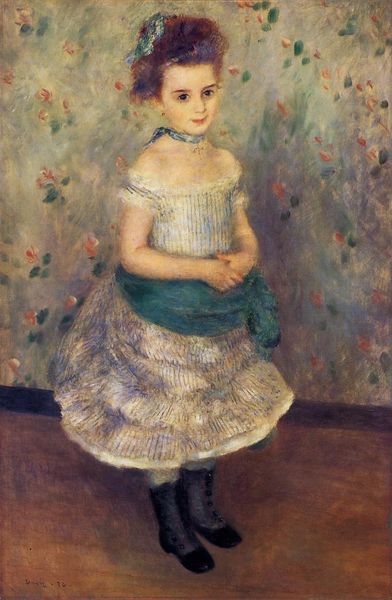
oil-paint
#
portrait
#
figurative
#
oil-paint
#
oil painting
#
expressionism
#
symbolism
Copyright: Public Domain: Artvee
Edvard Munch painted “Inger in Black and Violet” in 1892. The portrait depicts Munch’s sister, Inger, at a time when women’s roles were undergoing immense changes. Inger’s subdued appearance and contemplative gaze reflect the restrictive societal expectations placed upon women during the late 19th century. Her dark, high-necked dress and modest posture signify the limited opportunities available to women, particularly within the confines of domestic life. Inger's restrained stance suggests a sense of confinement, echoing the broader constraints imposed on women’s autonomy and self-expression. Munch once said, “I do not believe in the art which is not the compulsive result of Man’s urge to open his heart.” Here, this notion speaks to the emotional and psychological depth of the artwork. While Inger’s portrait may appear reserved on the surface, her presence evokes a sense of quiet strength amidst societal constraints. Munch's depiction of his sister captures the nuanced and often conflicting experiences of women navigating a rapidly changing world.
Comments
No comments
Be the first to comment and join the conversation on the ultimate creative platform.
